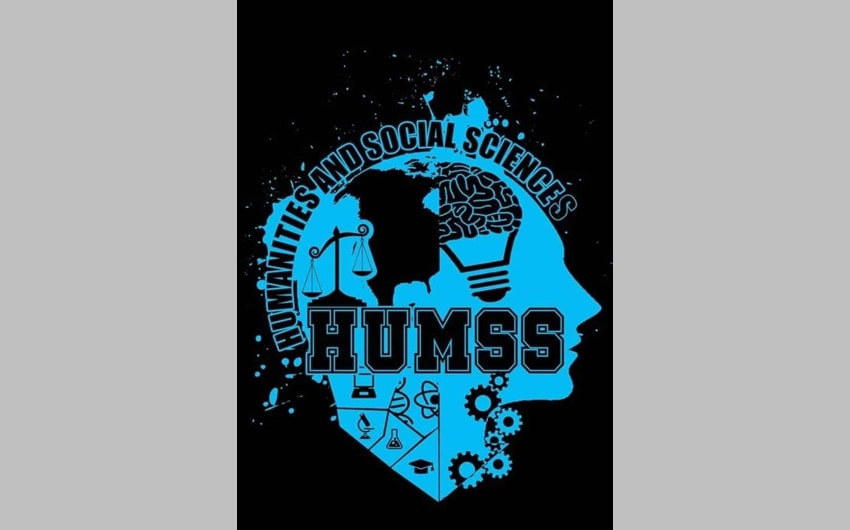240 Unique Ideas for a Research Topic on the HUMSS Strand
Choosing a research topic on the HUMSS strand can be exciting and rewarding, offering a chance to explore important questions about society, culture, and human behavior. The Humanities and Social Sciences (HUMSS) strand covers a broad range of fields like psychology, sociology, political science, and philosophy, making it perfect for students interested in understanding people and the world around us.
Whether you’re curious about social justice, media influences, or mental health, HUMSS research topics can help you dive into meaningful discussions that impact daily life and future careers. Let’s explore some engaging and impactful topics within the HUMSS strand!
Understanding the HUMSS Strand
The HUMSS strand, which stands for Humanities and Social Sciences, is an academic track focused on studying human behavior, culture, and society. It is designed for students interested in understanding the complexities of social interactions, human thought, and the impact of societal structures on individuals and communities.
The HUMSS strand covers a wide range of disciplines, including psychology, sociology, political science, literature, history, and philosophy. These subjects provide students with a well-rounded understanding of human dynamics, critical thinking, and analytical skills.
In the HUMSS strand, students learn to explore and analyze social issues, ethical questions, and cultural phenomena through various perspectives. This track encourages open-mindedness and empathy, as students examine topics like social justice, governance, communication, and human relationships.
With a foundation in HUMSS, students are prepared for careers in fields such as education, law, journalism, public administration, and social work. Ultimately, the HUMSS strand equips students to make meaningful contributions to society by fostering a deeper understanding of humanity and social structures.
Popular Research Topics in the HUMSS Strand

Image source: Pinterest
Cultural and Identity Studies
Exploring culture and identity provides deep insights into how individuals and communities shape, preserve, and adapt their values and traditions. Research in this area highlights the complexities of cultural diversity, representation, and the role of language in personal and group identity. By examining heritage preservation, students in the HUMSS strand can investigate the forces influencing cultural shifts and the significance of maintaining cultural roots in a globalized world.
Cultural Diversity and Representation
- The Role of Language in Preserving Cultural Identity
- Representation of Minorities in Popular Media
- The Impact of Globalization on Cultural Heritage Preservation
- Exploring Cultural Appropriation in Modern Fashion
- Gender Roles and Cultural Expectations in Different Societies
- Influence of Western Media on Local Cultural Values
- Cultural Differences in Approaches to Mental Health
- The Effects of Colonization on Indigenous Languages
- Changing Dynamics of Multicultural Communities in Urban Areas
- Representation of LGBTQ+ Identities in Mainstream Media
Language and Identity
- The Role of Language in Forming Personal Identity
- Language Shift and Its Effect on Cultural Identity
- Code-Switching Among Bilingual Youth in Social Settings
- Influence of Digital Communication on Language Use
- Preservation of Indigenous Languages and Their Cultural Significance
- Role of Multilingualism in Developing Global Citizenship
- The Psychological Effects of Language Loss on Immigrants
- Language as a Tool of Empowerment in Activism
- Dialect and Identity Among Regional Populations
- The Effects of Social Media on Language Evolution
Heritage Preservation
- Sustainable Tourism and Its Impact on Cultural Heritage Sites
- Community Efforts in Preserving Oral Traditions
- The Role of Museums in Cultural Heritage Preservation
- Digitizing Ancient Texts for Future Generations
- Comparing Heritage Preservation Efforts Across Countries
- The Effects of Climate Change on Historical Landmarks
- Public Awareness Programs for Protecting National Heritage
- Cultural Festivals as Tools for Heritage Preservation
- The Role of Archaeology in Understanding Ancient Societies
- Challenges in Restoring War-Damaged Historical Sites
Social Issues and Advocacy
Researching social issues and advocacy in HUMSS allows students to confront challenges related to equality, poverty, and human rights. This field examines how societies address or neglect systemic inequalities and advocates for change through policy and awareness. By studying these issues, students gain a better understanding of the structures that shape societal norms and the importance of collective responsibility in creating a fairer world.
Gender Equality
- The Role of Education in Promoting Gender Equality
- Media Representation of Women in Leadership Roles
- Impact of Patriarchal Structures on Women’s Rights
- Gender Pay Gap and Its Social Implications
- Changing Attitudes Toward Feminism Among Youth
- The Role of Men in Supporting Gender Equality
- Gender Equality in STEM Fields
- The Impact of Social Media on Gender Norms
- Gender Equality in Developing Countries: Barriers and Progress
- Representation of Non-Binary Identities in Public Policies
Poverty and Inequality
- Analyzing Economic Policies to Alleviate Poverty
- The Effects of Wealth Inequality on Education Access
- Income Inequality and Public Health Outcomes
- Discrimination Against Lower-Income Communities in Urban Planning
- Poverty Reduction Programs in Low-Income Countries
- The Role of NGOs in Addressing Poverty
- Access to Technology and the Digital Divide
- Impact of Affordable Housing on Social Equality
- Childhood Poverty and Its Long-Term Effects on Mental Health
- Disparities in Access to Higher Education by Socioeconomic Status
Human Rights and Social Justice
- The Impact of Social Media on Human Rights Awareness
- Examining Policies Against Racial Discrimination in Schools
- Gender-Based Violence and Legal Reforms
- The Role of International Organizations in Promoting Human Rights
- Access to Healthcare as a Human Right
- Freedom of Speech and Censorship in Digital Media
- The Right to Education for Refugee Children
- Protecting the Rights of Migrant Workers
- The Role of Activism in Promoting Social Justice
- Analyzing the Impact of Human Rights Violations on Mental Health
Education and Learning Environments
Education and learning environments are at the heart of human development and societal progress. HUMSS students focusing on this area can explore the effectiveness of teaching methods, the impact of mental health on academic success, and the role of digital tools in modern classrooms. These studies not only enhance our understanding of educational systems but also encourage innovations that support students’ growth and well-being.
Innovative Teaching Methods
- The Effectiveness of Project-Based Learning in High Schools
- Integrating Technology into Classroom Learning
- The Role of Gamification in Enhancing Student Engagement
- Online Learning vs. Traditional Classroom Learning
- Using Virtual Reality as an Educational Tool
- Teaching Critical Thinking Skills in Elementary Education
- Collaborative Learning and Student Performance
- Montessori Education vs. Traditional Education
- The Benefits of Arts Education on Cognitive Development
- Teaching STEM through Experiential Learning
Student Mental Health
- Examining the Role of School Counselors in Mental Health Support
- The Impact of Social Media on Teen Mental Health
- Strategies for Managing Stress Among College Students
- Effects of Exam Pressure on Student Mental Health
- Addressing Bullying in Schools and Its Mental Health Impact
- The Role of Physical Activity in Reducing Stress in Schools
- The Impact of School Closures on Student Wellbeing
- Suicide Prevention Programs in High Schools
- Role of Parental Support in Adolescent Mental Health
- Impact of Academic Workload on Student Mental Health
Digital Learning Impact
- Challenges of Digital Learning in Remote Areas
- Student Engagement in Online vs. In-Person Classes
- Digital Literacy and Its Importance in Modern Education
- Online Learning and Its Effect on Critical Thinking
- The Role of Parental Involvement in Digital Learning
- The Impact of Screen Time on Student Health
- Gamified Learning in Online Education
- Digital Tools for Enhancing Student Collaboration
- Accessibility of Online Education for Special Needs Students
- Teacher Training in Digital Education Tools
Political Science and Governance
Research in political science and governance provides insights into the mechanisms of power, policy, and public welfare. Topics in this category allow students to examine youth engagement, public policy’s impact on communities, and the challenges of promoting transparency. By studying governance, HUMSS students can explore how policies are shaped and gain a clearer perspective on the civic responsibilities within democratic systems.
Youth Political Engagement
- The Role of Social Media in Youth Political Activism
- Barriers to Youth Participation in Elections
- Understanding Political Apathy Among Young Adults
- Civic Education and Youth Engagement
- The Influence of Family on Youth Political Ideologies
- Youth Involvement in Climate Change Movements
- The Role of Student Organizations in Political Awareness
- Factors Influencing Youth Voter Turnout
- Youth Activism in the Age of Digital Media
- The Effect of Education on Political Awareness Among Youth
Public Policy and Welfare
- The Impact of Healthcare Policies on Low-Income Families
- Analyzing the Effectiveness of Public Housing Programs
- The Role of Government in Addressing Homelessness
- Education Reform Policies and Their Socioeconomic Impacts
- Public Perception of Welfare Programs in Urban Areas
- The Effects of Minimum Wage Policies on Employment Rates
- Taxation and Income Redistribution for Social Welfare
- Analyzing the Effectiveness of Food Assistance Programs
- Childcare Policies and Their Impact on Working Parents
- Elderly Care Policies in Aging Societies
Corruption and Transparency
- The Impact of Corruption on Economic Development
- Media’s Role in Exposing Government Corruption
- Analyzing Anti-Corruption Measures in Developing Nations
- The Relationship Between Political Corruption and Public Trust
- Effects of Whistleblower Protection Laws on Transparency
- Corruption in Law Enforcement and Its Social Consequences
- Government Transparency and Public Participation in Policy-Making
- Corporate Lobbying and Its Influence on Policy
- Impact of International Organizations on Domestic Anti-Corruption Efforts
- Examining Transparency in Campaign Finance
Psychology and Human Behavior

Understanding human behavior is central to psychology and is fundamental to the HUMSS strand. Topics in this category, from social media’s influence on mental health to resilience and coping mechanisms, help students explore why people think, act, and react as they do. Researching psychology and behavior offers valuable insights into human emotions, mental processes, and the social factors that influence our daily lives.
Social Media’s Effect on Mental Health
- The Impact of Social Media on Body Image Among Teens
- Social Media Usage and Its Effects on Sleep Quality
- The Role of Online Validation in Adolescent Self-Esteem
- Cyberbullying and Its Psychological Impact on Young Users
- The Link Between Social Media and Anxiety Levels in Teenagers
- FOMO (Fear of Missing Out) and Its Impact on Social Behaviors
- The Influence of Social Media on Youth Identity Formation
- Addiction to Social Media and Its Cognitive Effects
- The Role of Influencers in Shaping Mental Health Attitudes
- Social Media Detox: Effects on Mental Wellbeing
Resilience and Coping Mechanisms
- The Role of Family Support in Developing Resilience
- Coping Mechanisms Among Students Facing Academic Pressure
- Resilience in Children from Low-Income Families
- The Impact of Physical Exercise on Coping with Stress
- Coping Strategies for Grieving Adolescents
- Role of Cultural Beliefs in Shaping Resilience
- Gender Differences in Coping Mechanisms
- The Effectiveness of Mindfulness in Stress Management
- The Impact of Positive Psychology on Mental Health
- Resilience Among First Responders: Coping with Trauma
Consumer Behavior
- The Psychology Behind Brand Loyalty Among Millennials
- Impact of Advertising on Children’s Consumer Behavior
- The Role of Emotions in Impulse Buying
- Influence of Social Media Advertising on Purchasing Decisions
- The Effect of Consumer Reviews on Buying Habits
- Cultural Differences in Consumer Spending Patterns
- The Role of Packaging in Consumer Choices
- Factors Influencing Environmentally Conscious Purchases
- The Effect of Price Perception on Shopping Behavior
- Consumer Reactions to Celebrity Endorsements
Environmental and Sustainability Studies
Environmental and sustainability studies focus on the urgent need to protect and sustain the planet. Research in this area explores climate awareness, sustainable urban planning, and ethical issues surrounding conservation. By studying these topics, HUMSS students can contribute to the dialogue on balancing human progress with environmental responsibility, ensuring a more sustainable future for generations to come.
Climate Change Awareness
- The Role of Education in Climate Change Awareness
- Climate Change and Its Impact on Coastal Communities
- Public Perceptions of Climate Change and Responsibility
- The Role of Media in Shaping Climate Change Awareness
- Effects of Climate Change Education on High School Students
- Youth Involvement in Climate Advocacy Movements
- The Role of Social Media in Climate Change Awareness
- The Impact of Documentaries on Climate Change Perceptions
- Local Government Initiatives to Combat Climate Change
- Attitudes Towards Renewable Energy Among Young People
Sustainable Urban Planning
- Green Spaces and Their Impact on Urban Health
- Strategies for Reducing Urban Carbon Emissions
- Urban Farming and Food Security in Cities
- Public Transportation and Its Environmental Benefits
- Role of Community Gardens in Sustainable Cities
- Sustainable Waste Management Practices in Urban Areas
- Eco-Friendly Building Materials and Urban Development
- Bicycle-Friendly Cities: A Study on Urban Health and Sustainability
- The Effectiveness of Smart City Technologies for Sustainability
- Urban Heat Islands and Sustainable Cooling Solutions
Environmental Ethics
- Ethical Implications of Animal Testing in Medical Research
- The Role of Ethics in Wildlife Conservation Efforts
- Environmental Ethics in Industrial Waste Disposal
- Debates on the Ethical Use of GMOs in Agriculture
- The Moral Responsibility of Businesses in Environmental Conservation
- Ethics of Environmental Activism and Civil Disobedience
- Balancing Economic Growth with Environmental Protection
- Ethical Considerations in Water Resource Management
- Indigenous Knowledge and Environmental Stewardship
- Ethical Dilemmas in Geoengineering Solutions to Climate Change
Media and Communication Studies
In an era of rapid communication and information, media studies play a vital role in understanding public opinion and social behavior. This category covers topics like the influence of media on public perception, the spread of misinformation, and the impact of advertising on youth. Research in media and communication provides HUMSS students with the tools to critically assess the power of media in shaping societies.
Media’s Role in Shaping Public Opinion
- Influence of News Media on Political Opinions
- Role of Media Coverage in Social Movements
- Bias in News Reporting and Its Impact on Public Perception
- Media’s Role in Shaping Attitudes Toward Immigration
- Influence of Celebrity Culture on Public Values
- Examining the Role of Media in Election Campaigns
- Effects of Negative Media Coverage on Mental Health
- The Role of Media in Shaping Attitudes on Gender Issues
- Media’s Role in Creating Fear During Health Crises
- Media Influence on Youth Attitudes Toward Body Image
Fake News and Information Literacy
- Understanding the Spread of Fake News in Social Media
- The Role of Education in Combating Fake News
- Analyzing the Psychological Appeal of Conspiracy Theories
- Effects of Misinformation on Public Health
- Identifying Bias in News Sources: A Guide for Students
- Tools for Fact-Checking and Source Verification
- Impact of Fake News on Democracy and Voting Behavior
- Fake News and Its Role in Vaccine Hesitancy
- The Role of Social Media Algorithms in Misinformation
- Public Trust in News Sources Amid Fake News Concerns
Influence of Advertising on Youth
- Impact of Digital Advertising on Youth Buying Behavior
- Influence of Social Media Influencers on Teen Preferences
- Advertising’s Role in Body Image Among Adolescents
- Marketing Strategies Targeting Young Consumers
- The Effect of Video Games on Youth Spending Habits
- Parental Control Over Advertising Exposure in Children
- Role of Advertisements in Shaping Lifestyle Choices
- Impact of Fast Food Advertising on Youth Health Choices
- Stereotypes in Advertising and Youth Perceptions
- Effects of Environmental Ads on Youth Consumer Habits
Philosophy and Ethics
Philosophy and ethics challenge students to think deeply about moral dilemmas, happiness, and decision-making. This category explores ethical issues in technology, philosophical perspectives on happiness, and morality in social decisions. For HUMSS students, studying philosophy and ethics provides a foundation for understanding complex questions that influence both personal and societal choices, encouraging thoughtful reflection on values and justice.
Ethics in Technology
- Ethical Issues in Artificial Intelligence Development
- Privacy Concerns in the Age of Big Data
- The Impact of Surveillance Technology on Privacy
- Ethical Implications of Genetic Engineering
- Exploring the Ethics of Autonomous Vehicles
- Social Media’s Role in Personal Privacy Violations
- Technology Addiction: Ethical Concerns in Digital Design
- Digital Rights and Freedom of Expression Online
- Ethical Considerations of Robotics in Healthcare
- Ethics of Using Biometric Data for Security
Philosophical Perspectives on Happiness
- Comparing Eastern and Western Philosophies on Happiness
- The Role of Happiness in Moral Philosophy
- Examining Hedonism vs. Eudaimonia in Happiness Theory
- Stoicism and Its Relevance in Modern Happiness
- Pursuit of Happiness in Capitalist Societies
- The Influence of Religion on Happiness Perceptions
- Happiness and the Role of Self-Actualization
- Exploring Altruism as a Path to Happiness
- Philosophical Perspectives on Happiness and Wealth
- Impact of Social Relationships on Happiness
Morality and Decision-Making
- Role of Ethics in Medical Decision-Making
- Examining Moral Dilemmas in Journalism
- The Role of Culture in Moral Development
- Impact of Religious Beliefs on Ethical Choices
- Ethical Implications of Punishment in Criminal Justice
- The Influence of Peer Pressure on Moral Decisions
- Moral Decision-Making in Business and Profit
- Personal vs. Societal Ethics in Controversial Issues
- Exploring the Morality of Environmental Conservation
- The Role of Morality in Law and Policy Development
Tips for Choosing a Research Topic in HUMSS

Choosing a research topic within the HUMSS (Humanities and Social Sciences) strand can be both exciting and challenging. With such a broad range of subjects to explore—from psychology and sociology to political science and philosophy—students have many options for selecting a meaningful, impactful topic. Here are some tips to guide you in choosing a research topic that aligns with your interests and has the potential for a rewarding study.
1. Follow Your Interests
Start by considering areas within HUMSS that genuinely intrigue you. Think about topics or questions you are naturally curious about, whether it’s understanding cultural identity, analyzing social issues, or studying the psychology behind human behavior.
When you choose a topic that resonates with your personal interests, you’re more likely to stay engaged and motivated throughout the research process, making it easier to delve deeply and enjoy the experience.
2. Consider Current Social Relevance
Another useful approach is to pick a topic that reflects current events or addresses pressing social issues. By focusing on relevant and timely matters—such as climate change awareness, mental health, or digital privacy concerns—you’ll find your research is likely to resonate with a broader audience.
Additionally, working on a socially relevant topic can help you contribute to meaningful conversations and possibly make a positive impact.
3. Aim for Depth over Breadth
In research, it’s often more effective to explore a specific topic in depth rather than covering a broad subject superficially. Narrowing down your topic to a particular question, issue, or population allows you to analyze it thoroughly and present more insightful findings.
For instance, instead of choosing a general topic like “education methods,” consider narrowing it to “the impact of gamified learning on high school students’ engagement.”
4. Evaluate Feasibility and Resources
Before finalizing your topic, assess the feasibility of conducting research on it. Consider whether you have access to the necessary resources, data, and literature. Some topics may require extensive data collection, special tools, or access to particular populations.
Ensure that the research you’re considering is practical within your timeframe and resource limitations so that you can conduct thorough research without unnecessary hurdles.
5. Think About Potential Impact
Consider how your research can contribute to the field or benefit a particular community. HUMSS topics often have real-world implications, whether in education, policy, or social development.
Choosing a topic with a potential impact on society can make your research feel more meaningful and rewarding. For example, studying “gender representation in media” not only advances academic understanding but can also inspire discussions on equality and inclusivity.
6. Consult with Mentors or Professors
Talking to mentors, professors, or advisors within the HUMSS field can offer valuable insights and ideas for research topics. They can help you identify promising areas of study, suggest specific issues that need further exploration, and guide you in refining your topic.
Experienced mentors may also share resources or direct you to recent studies, ensuring your research is relevant and aligns with current academic interests.
7. Review Existing Literature and Gaps
Conducting a preliminary review of the literature in your area of interest is crucial. Reading existing research helps you understand what has already been studied and can reveal gaps or unanswered questions.
These gaps present opportunities for original research, allowing you to contribute new insights to the field. For instance, if previous studies on digital learning have focused primarily on college students, you could explore the impact on high school students or younger age groups.
8. Choose a Topic with Multiple Perspectives
Topics that offer room for multiple viewpoints or interdisciplinary analysis are often more engaging and insightful. HUMSS encourages diverse perspectives, and selecting a topic that allows you to explore different angles—such as social, psychological, and ethical implications—can enrich your research.
For instance, researching “the role of social media in youth activism” could include perspectives from media studies, sociology, and political science.







